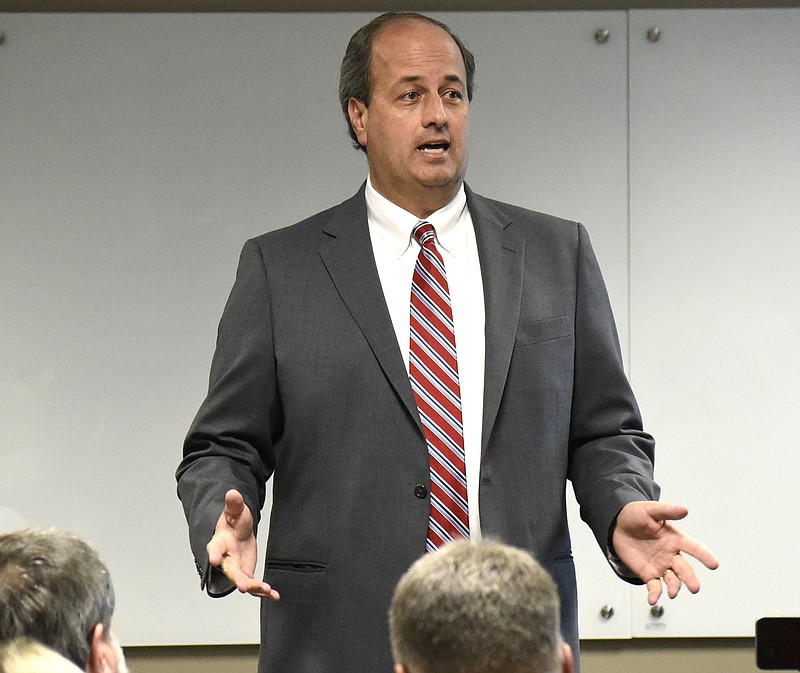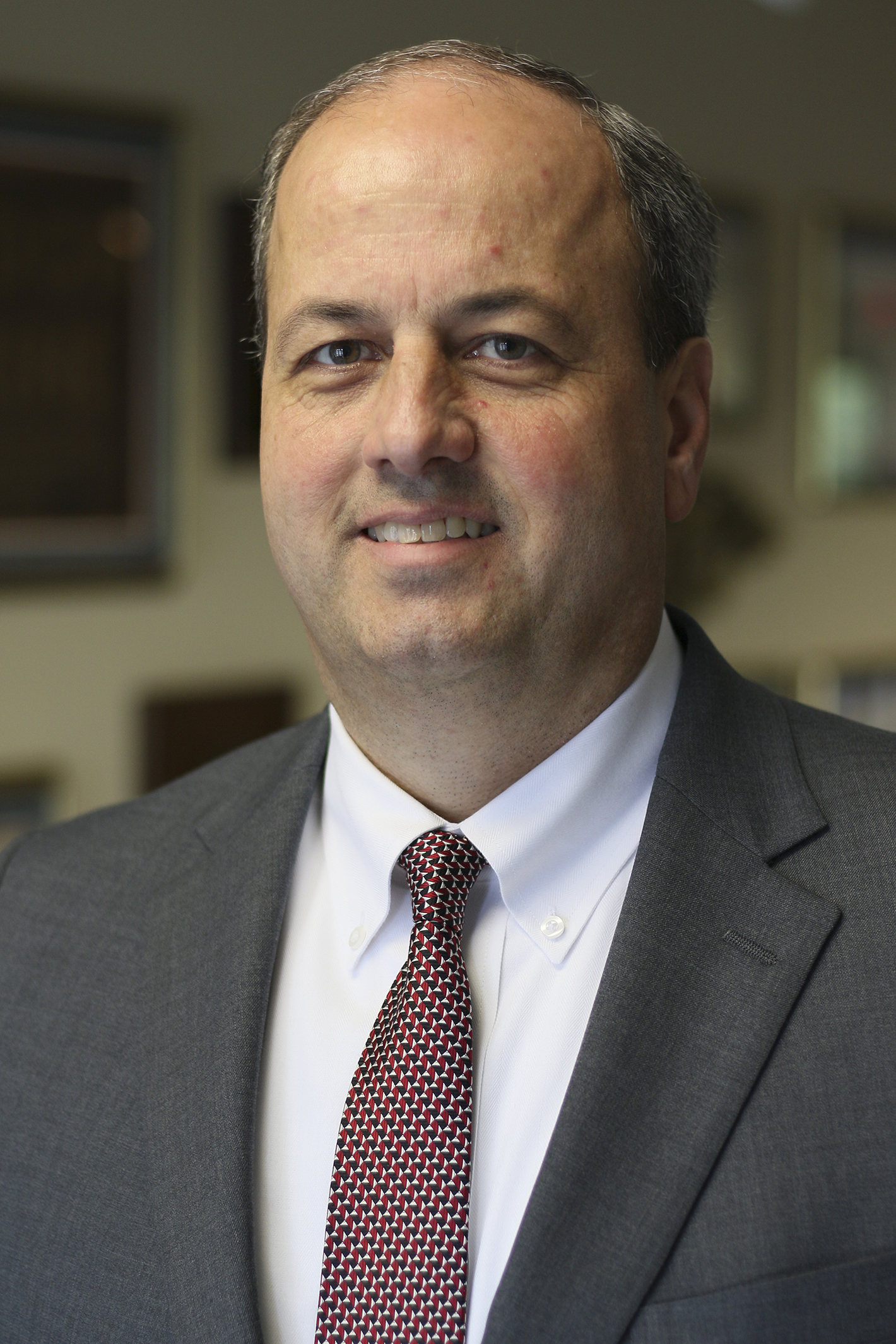ROCK SPRING, Ga. - After Walker County property owners paid more than $3 million above expectations the last two years, Commissioner Shannon Whitfield canceled a special fee on this fall's tax bills.
Whitfield created the fee in August 2017 to pay back the county's $8.7 million debt to Erlanger Health System. He charged every property owner 0.14 percent of the assessed value of their land. At the time, he said the fee would bring in about $2.5 million a year. It was supposed to be in effect through the end of 2019.
But after two years, according to the county tax commissioner's office, property owners have paid $8.3 million. Whitfield said Wednesday he believes the county will get close to the outstanding $400,000 when residents catch up on overdue bills. About 1.6 percent of land owners haven't paid their 2017 taxes and about 5.4 percent haven't paid for 2018, Tax Commissioner Carolyn Walker said.
"We have all shared in the sacrifice necessary to pay the debt Walker County owes to Erlanger," Whitfield said in a video on the local government's Facebook page. "Dealing with this debt has been a tough chapter in our shared journey. Today, we turn the page."
Whitfield will pass an ordinance ending the fee next month. The debt to Erlanger stems back to April 2011, when former Walker County Commissioner Bebe Heiskell guaranteed half of a loan from the Chattanooga hospital to Hutcheson Medical Center.
Whitfield's announcement comes one day before the tax commissioner was scheduled to speak at a meeting of the Georgia Transparency Coalition. Dean Kelley, the former coordinator of the Walker County Tea Party, said Walker was going to update residents on the amount of money collected on the fee, showing Whitfield had received much more than expected. Kelley still expects to discuss the issue at today's meeting, scheduled for 6:30 p.m. at Park Place Restaurant in Fort Oglethorpe.
"This was a hardship put on the taxpayers, especially those on a fixed income," he said after Whitfield's announcement. "Why did he set up the health facilities fee to pay as much as it did?"
Perry Lamb, who ran unsuccessfully against Whitfield in 2016 and plans to run again next year, criticized the commissioner. He argued the commissioner should have projected the revenue more accurately, allowing property owners to pay less each cycle for three years. (Lamb has not announced whether he will run for the county-wide executive seat or a seat representing his home base in Kensington.)
"It's funny how our numbers man who everyone elected cannot do math," Lamb said. "He's so surprised that, in two years, he collected all the taxes. At least he didn't break his arm patting himself on the back."
During an interview with the Times Free Press on Wednesday, Whitfield said he collected more than expected for two reasons. First, property values increased, allowing that 0.14 percent fee to produce more funds. But he knew the property values of the county when he adopted the fee on Aug. 24, 2017 - and he received $4.2 million, about $1.7 million more than expected.
The county's overall value increased by about $16.5 million in 2018. That would have yielded about $23,000 above what he expected to get when he created the fee.
Whitfield also said he received more money than expected because property owners paid tax bills faster than expected. (But according to the tax commissioner's office, collection rates have remained consistent for about 10 years.)
Later in the interview, Whitfield said he had always planned to receive a larger figure to pay back the Erlanger debt. At the time, the county owed the hospital $8.7 million, plus interest and some attorney's fees. In an October 2017 court filing, Erlanger's attorneys wrote that the interest had reached about $230,000.
"We were having to do a lot of estimating of what the total debt was going to be and what the collection rate was going to be," Whitfield said. " It's turned out our estimates were extremely conservative, which has turned out to be a positive situation."
Jim Hill, who will run for a county commission seat in the Rossville area next year, said he expected Whitfield to pay off the debt faster than three years. Ultimately, Wednesday's announcement is a victory, he said.
"Paying less fees and taxes is always a good thing," he said. "Getting this Erlanger debt off the citizens is a good thing. Two years was a quick time to do it in, but we accomplished that. And now it's time for the citizens of the county to reap the benefits, and let's move forward."
In January 2018, Whitfield and Erlanger's board settled for $8.7 million, with the county paying the hospital in installments through December 2020.
Heiskell guaranteed half of a $20 million loan in April 2011, when Erlanger entered into a management agreement with Hutcheson. The arrangement among hospital leaders soured, though.
In September 2013, the Hospital Authority of Catoosa, Dade and Walker counties voted to end its agreement with Erlanger. The Chattanooga hospital's board then sued, demanding its money back. Hutcheson Medical Center declared bankruptcy in November 2014, allowing the authority to avoid paying the debt.
Erlanger's board then pursued the money from Heiskell and the Catoosa County Commission, which had guaranteed the other half of the loan. Eventually, private companies bought Hutcheson for $4.2 million and its former nursing home for $2.9 million. Erlanger received some of that money, and the counties received credit that lowered their debts to $8.7 million each.
With enough money in reserves to pay up front, Catoosa County settled with Erlanger in June 2016 for $6.2 million.
Contact staff writer Tyler Jett at 423-757-6476 or tjett@timesfreepress.com. Follow him on Twitter @LetsJett.


